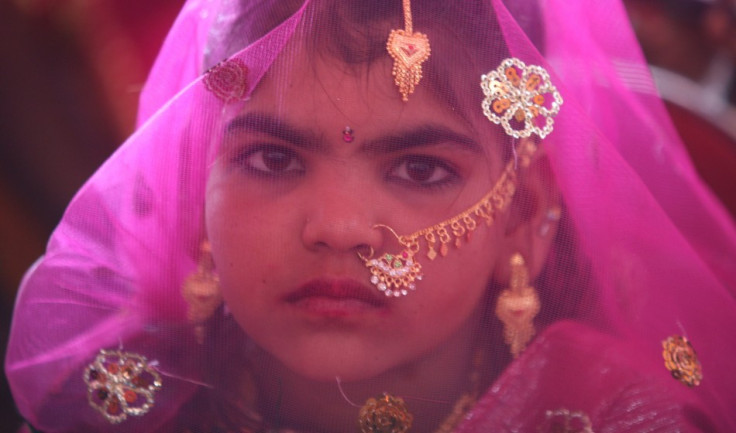Iraq to Legalise Marriage of Girls as Young as Nine

Iraq is set to pass a law that allows girls as young as nine to get married.
The bill does not set a minimum age for child marriage, but the section on divorce has specific rules for girls as young as nine - the age girls reach puberty, according to Iraqi legislators.
Critics of the bill believe that those drafting the bill slipped the age reference into the divorce section as an indirect way of allowing girls of that age to get married.
Former prime minister Ayad Allawi warned that the bill would legalise the abuse of women.
"It allows for girls to be married from nine years of age and even younger," he said.
The legislation, known as the Jaafari law, contains a clause that states women must comply with their husband's sexual demands, which critics argue sanctions marital rape. The bill gives men guardianship rights over women and establishes rules governing polygamous relationships.
"Married underage girls are subjected to physical and psychological suffering," Hanaa Edwar, head of the charity Al-Amal ("Hope" in Arabic), told AP.
"It [the bill] turns women into tools for sexual enjoyment. It deletes all their rights."
Supporters of the Jaafari law, named after a Shia Muslim school of jurisprudence, say it simply regulates practices already existing in day-to-day life.
The law as it stands sets the legal age for marriage without parental approval at 18 and says that girls as young as 15 can be married only with a guardian's approval.
The practice of child marriage was banned in Iraq in the 1970s, but resumed when the country plunged into war in 2003.
In 2007, 21% of young Iraqi women reported they were married as children, according to Al-Monitor website.
The Population Reference Bureau reported that the decline in early marriages officially peaked in 2013, when more than a quarter of underage girls were married. Some 5% had been married before the age of 15.
The bill has been approved by the governing coalition in an effort to attract support from Iraq's majority Shiite population in the parliamentary elections at the end of April, Independent.ie reported.
Baghdad-based analyst Hadi Jalo said: "Some influential Shiite politicians have the impression that they should do their best to make any achievement that would end the injustice that had been done against the Shiites in the past".
© Copyright IBTimes 2025. All rights reserved.






















